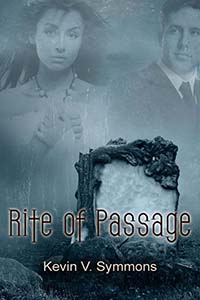Didn’t some sage in the 16th Century say, “A rose by any other name would smell as sweet”… perhaps, but would it be as enticing, as interesting?
How would we view romantic fiction’s most popular and notorious heroine were her name Maude instead of Scarlett O’Hara. And what if her long-suffering suitor was named Joe instead of Rhett Butler would he have garnered the same swashbuckling bravado in our imaginations. And this works not only for the bold, the driven, and the beautiful. Let’s try and imagine a dark-hearted, morose old man named Fred instead of Ebenezer Scrooge… not quite the same. And what about Alexandria Eyre? Somehow we find it hard to imagine Charlotte Bronte’s stubborn, small, plain heroine with such an illustrious name.
No, without a doubt, character names have a vital place in both historical and contemporary literature. How often do I here the ladies swoon when the name “Ranger” is mentioned in association with heroine Stephanie Plum. Somehow if Ms. Ivanovich had named him Bob the macho element would definitely be lacking.
Convinced yet. Great!
We authors resort to a wide variety of devices, formulas, and even tricks to try to give their characters names their reading audience will remember. I’ve never subscribed to one of the many services that offer names for sale. I have friends who do. Others search the news media. Some resort to the obituaries searching for names. My best writing friend seeks names that are not only distinctive but give an exotic flavor to her characters. I admit I’m more a grass roots type. I give my characters names that I (and my beta readers) find appropriate not through formula or science but by the touch and feel method.
My debut novel featured a heroine named Courtney (Definition: of the court) who was the embodiment of a one-thousand year old Wiccan Goddess. Her heroine was named Robert… a strong masculine name. I intentionally abbreviated his proper name by having his intimates call him Robbie, an indication of his naïveté and relative immaturity, at least when compared with his beautiful but ancient heroine. The other strongest character was Simon, an all powerful male witch who embodied both the mystery and strength contained in his name.
My latest novel features Eric, a strong monosyllabic name (definition: one strong who rules) suited for my strong, Special Forces veteran hero and Ashley-Jean (definition: one who sees, which we discover she is), a brilliant, technology savant; a frightened young woman seeking refuge from the evil that pursues her. As a young, southern woman the name seemed to fit perfectly and my test readers agreed.
Which brings up another point: the name must not only lend a visual to the character’s image in the readers mind but must symbolize their place in the story.
In a few hundred words it’s difficult to give a thorough explanation of how and why we authors chose certain methods and different strategies to breathe life into our characters not only with their thoughts and deeds but by what we call them.
I welcome input from readers and fellow authors alike why and how you choose to name your characters. Until next time…
Kevin Symmons

